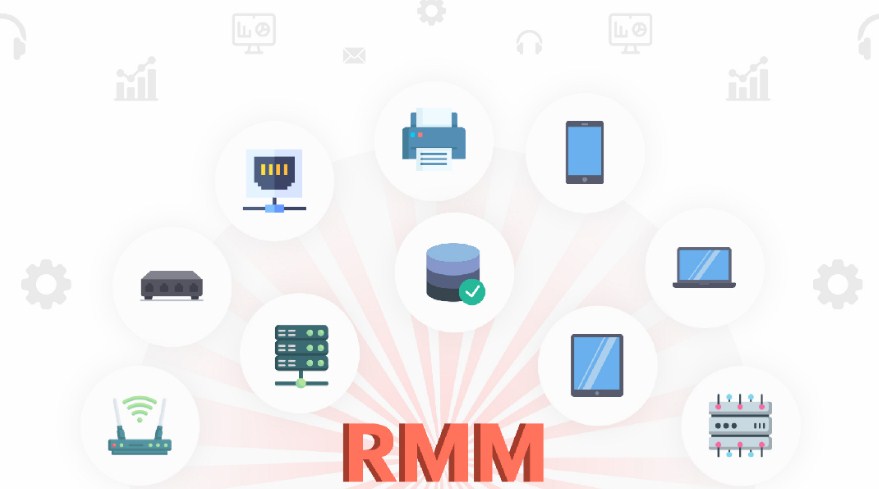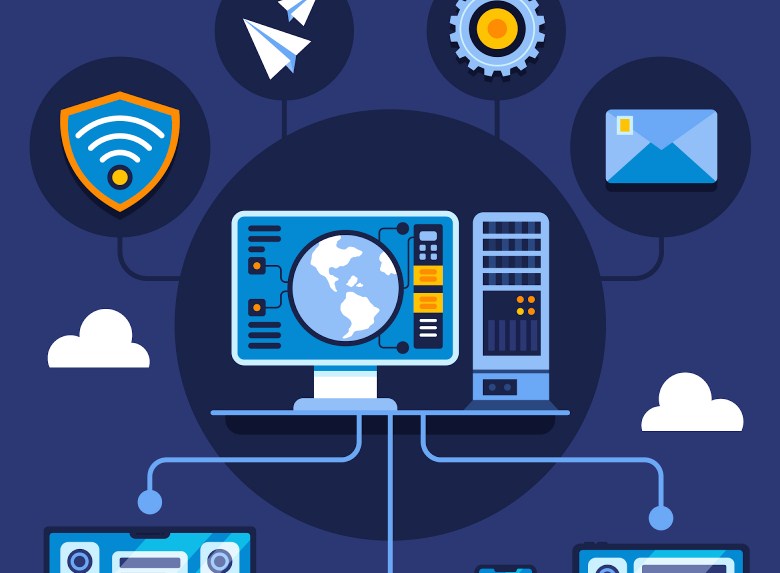PSA and RMM Meaning – In the world of IT services, especially for Managed Service Providers (MSPs), PSA and RMM are two key tools that help automate and streamline operations. But what do these acronyms mean, and why are they so important? In this article, we will dive deep into the meanings of PSA (Professional Services Automation) and RMM (Remote Monitoring and Management), the benefits of using them, and how they help MSPs and IT professionals improve efficiency.

Let’s explore each tool, understand its functionality, and examine the top products available in the market. We will also show you where and how to buy these tools to enhance your business. 🚀
What is PSA? (Professional Services Automation)
PSA stands for Professional Services Automation, a software designed to help businesses streamline and automate the processes related to delivering professional services. It includes a set of tools that manage various aspects of business operations such as project management, billing, time tracking, resource allocation, and client management. 📊
How PSA Works
PSA tools consolidate all your service management tasks into one platform. This includes:
- Time Tracking ⏱️: For accurate billing and resource management.
- Project Management 🗂️: Helps manage client projects, track milestones, and deliverables.
- Billing and Invoicing 💸: Automatically generates invoices based on work done and contracts signed.
- Resource Allocation 🧑💻: Ensures your team is properly allocated based on availability and expertise.
Benefits of PSA Software
- Increased Efficiency 🚀: Automates time-consuming tasks such as invoicing and time tracking.
- Improved Client Relationships 🤝: Offers better project visibility and communication with clients.
- Scalability 📈: PSA systems are flexible and can grow as your business expands.
- Accurate Reporting 📑: Provides detailed insights into resource allocation, billing, and performance metrics.
What is RMM? (Remote Monitoring and Management)
RMM stands for Remote Monitoring and Management. It’s a set of software tools used by MSPs and IT professionals to monitor and manage client systems remotely. RMM tools are designed to provide continuous monitoring of network infrastructure, detect issues early, and remotely resolve them without the need for on-site intervention.
How RMM Works
RMM solutions typically work through agents installed on client devices. These agents send data back to a central platform, allowing IT teams to monitor performance and address potential issues remotely.
- Remote Monitoring 🖥️: Keeps track of network devices and systems, ensuring they are functioning properly.
- Automation 🤖: Automates repetitive tasks like updates, patches, and security scans.
- Alerts ⚠️: Sends real-time alerts for system anomalies, security breaches, or hardware failures.
- Remote Support 📞: IT technicians can remotely access a client’s device to resolve issues without needing to visit the site.
Benefits of RMM Software
- Proactive Maintenance 🛠️: Prevents issues before they disrupt business operations.
- Cost-Effective 💰: Reduces the need for on-site visits, saving both time and money.
- Increased Productivity 📅: IT teams can handle multiple clients or systems remotely, improving efficiency.
- Security 🔐: Constant monitoring ensures that security breaches are detected and handled quickly.
Top 5 PSA and RMM Tools for MSPs

1. ConnectWise Manage (PSA Tool)
ConnectWise Manage is a leading PSA platform designed for MSPs. It helps automate ticketing, service desk, project management, and invoicing processes, improving the overall service delivery experience.
- Use Case: Ideal for MSPs managing a variety of client needs and complex service requests.
- Features: Time tracking, billing, project management, customer relationship management (CRM).
- Pros: Comprehensive tool, strong integration capabilities.
- Cons: Steep learning curve.
- Price: Starts at $75/month per user.
2. Datto RMM (RMM Tool)
Datto RMM is a robust RMM tool with a focus on network monitoring and security. It’s ideal for MSPs seeking a solution that provides remote monitoring, patch management, and security.
- Use Case: Perfect for MSPs who need a reliable, cloud-based RMM solution.
- Features: Remote monitoring, patch management, backup and disaster recovery, automation.
- Pros: Easy to use, scalable, strong security features.
- Cons: Limited reporting features compared to some other tools.
- Price: Pricing available upon request.
3. Kaseya VSA (RMM Tool)
Kaseya VSA is another RMM platform offering powerful features like patch management, IT automation, and remote support.
- Use Case: Great for MSPs looking for an all-in-one solution with strong automation capabilities.
- Features: Remote monitoring, patching, endpoint management, IT automation.
- Pros: Comprehensive features, advanced automation, scalable.
- Cons: Can be overwhelming for new users.
- Price: Starts at $1,000/year.
4. Autotask PSA (PSA Tool)
Autotask PSA is a PSA tool that helps MSPs manage workflows, optimize resource allocation, and streamline billing.
- Use Case: Ideal for MSPs that need to manage multiple clients and improve operational efficiency.
- Features: Service desk automation, project management, time tracking, billing.
- Pros: Integration with other Autotask products, customizable workflows.
- Cons: Pricing can be high for small businesses.
- Price: Starts at $75/month.
5. NinjaRMM (RMM Tool)
NinjaRMM is an intuitive RMM tool designed for ease of use and providing powerful monitoring capabilities.
- Use Case: Ideal for MSPs that need a straightforward, easy-to-use remote management solution.
- Features: Monitoring, patch management, remote support, automation.
- Pros: User-friendly interface, quick setup, strong security features.
- Cons: Limited advanced features compared to other platforms.
- Price: Starts at $3/month per device.
Comparison Table: PSA and RMM Tools
| Product | Use Case | Pros | Cons | Price | Key Features |
|---|---|---|---|---|---|
| ConnectWise Manage | PSA for service management | Strong integration, scalable | Steep learning curve | From $75/month | Time tracking, CRM, invoicing, project management |
| Datto RMM | RMM for network monitoring | Easy to use, cloud-based | Limited reporting | Available on request | Remote monitoring, patch management, backup |
| Kaseya VSA | RMM for IT automation | Comprehensive, strong automation | Complex for beginners | From $1,000/year | Remote support, patching, IT automation |
| Autotask PSA | PSA for project management | Customizable workflows, good integration | Expensive for small businesses | From $75/month | Service desk, billing, resource allocation |
| NinjaRMM | RMM for remote management | Easy setup, user-friendly | Limited advanced features | From $3/device/month | Monitoring, patch management, remote support |
Where and How to Buy PSA and RMM Tools
- ConnectWise Manage: Available for purchase on the ConnectWise website.
- Datto RMM: Contact Datto for pricing at Datto’s website.
- Kaseya VSA: Learn more and purchase on the Kaseya website.
- Autotask PSA: Purchase through Datto’s Autotask PSA page.
- NinjaRMM: Get started with a free trial at NinjaRMM’s website.
Frequently Asked Questions (FAQs)
1. What is the main difference between PSA and RMM?
PSA is focused on automating business management tasks, such as billing and project management, while RMM is used for monitoring and managing IT systems remotely.
2. Why do MSPs need both PSA and RMM tools?
MSPs use PSA for business management and RMM for IT management. Together, they streamline operations, increase efficiency, and improve service delivery.
3. How much do PSA and RMM tools cost?
Prices vary depending on the tool and features, with PSA tools like ConnectWise starting around $75/month, and RMM tools like NinjaRMM starting at $3 per device/month.
4. Can I try PSA and RMM tools before purchasing?
Yes, many PSA and RMM tools offer free trials, such as NinjaRMM and Kaseya VSA.
5. What are the key features to look for in PSA and RMM tools?
For PSA, look for time tracking, project management, and invoicing. For RMM, look for remote monitoring, patch management, and automation.
Conclusion
PSA and RMM tools are essential for MSPs and IT professionals to improve efficiency, enhance client service, and drive business growth. Understanding their meanings, benefits, and use cases helps you choose the right solution for your business needs. Whether you are looking to automate project management or monitor client systems remotely, the right PSA and RMM tools can make a world of difference. Choose wisely, and watch your productivity soar!
Read More >>>
- The Ultimate Guide to Remote Monitoring & Management and Professional Services Automation Tools
- Best RMM and PSA Tools in 2024: Top Solutions for IT Service Providers